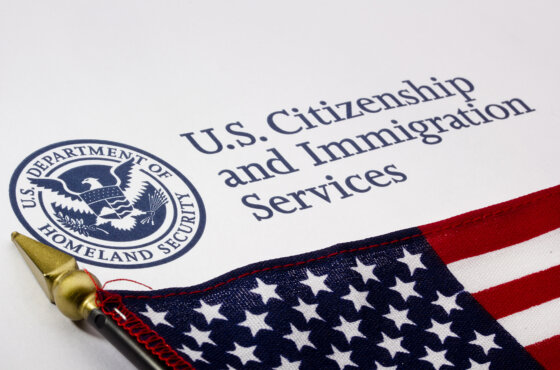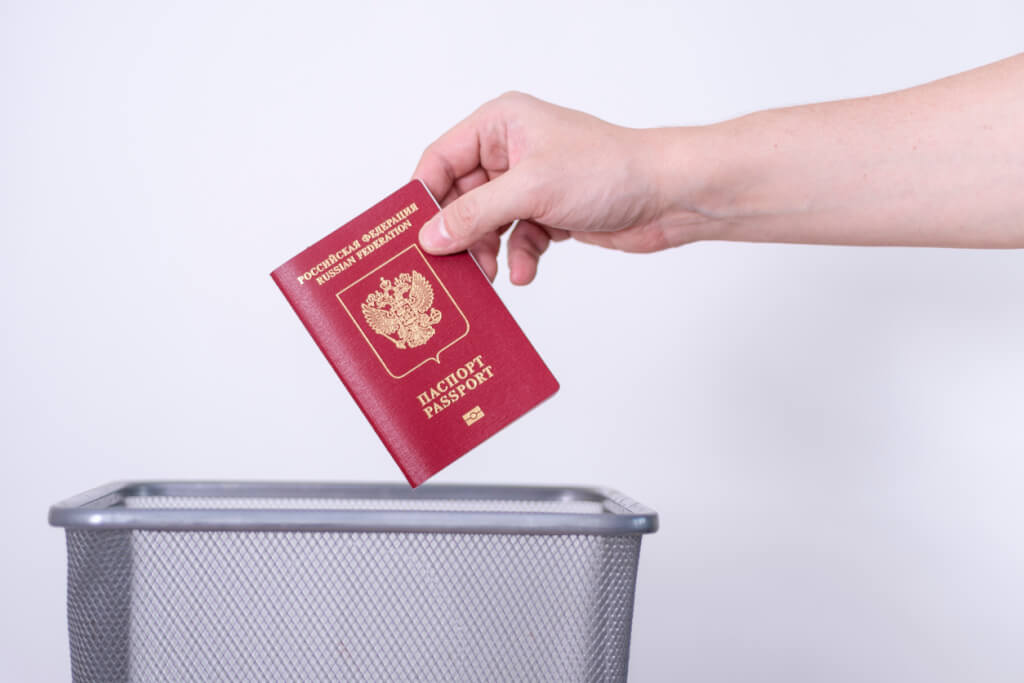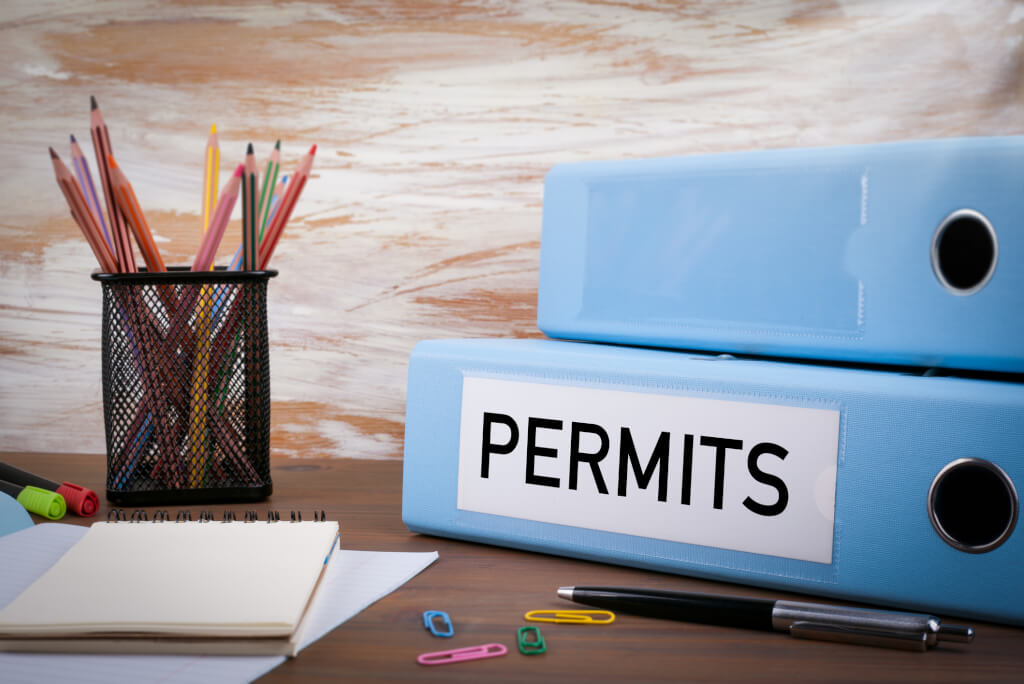Three Stories of our Immigrants, who Got in Jail for Illigal Immigration
As promised during his election campaign, President Donald Trump has launched a massive attack against illegal immigration. According to The Washington Post, the U.S. is now home to about 11 million illegal immigrants. Any one of them might get arrested: previously, only convicted criminals could wind up in jail, but now anyone without legal documents might end up in prison, even those who have applied for political asylum and have legal status in the country.

Фото: Shutterstock
ForumDaily interviewed three immigrants from the former USSR who ended up in immigrant jails, found out about conditions there, and learned what each illegal immigrant should know about his or her rights.
Prisoner with a legal status
Russian Denis Davydov fled from Moscow and arrived in the United States in September 2014. Back home he was open about being gay. After the coming-out, Davydov’s colleagues started bullying him, and some unknown young people threatened to kill him. To save his life, Davydov was forced to leave Russia.
He came to America with a tourist visa. Two months after its expiration, Davydov applied for political asylum. The law stipulates that the application should be filed within a year after arrival in the U.S. As soon as Denis received an official labor permit, he got a job of barista in a San Jose restaurant in California.
In March 2018, Denis decided to take a vacation on the United States Virgin Islands. The only ID he took with him on a trip was his California state ID. Leaving the country was easy, but returning home turned out a difficult journey.
On March 13 Davydov arrived at Saint Thomas airport, located on the U.S. side of the Virgin Islands. At passport control, he showed his ID, but officers asked him to provide additional documents confirming his identity. Denis didn’t have with him his asylum-seeking letters from the U.S. Citizenship and Immigration Service. The customs officers decided to send Denis to immigration jail until a fact-check is done. ForumDaily learned this from Denis’s close friend Sergey Piskunov.
“The major conviction is that Denis has violated his visa regime. His tourist visa expired six months after arrival. But the law stands for him. All asylum seekers in the United States can apply within one year after arrival. Denis met the deadline, and we believe his arrest was illegal,” Sergey says.
As of late April, Denis Davydov had been staying in Krome Service Processing Center in Florida for six weeks. His friend Sergey says the detention has taken its toll on Denis’s health. Davydov is HIV-positive, so he needs special care while in jail.
“He is experiencing problems with immunity, and he hasn’t been able to see a doctor for a while now! The Center only has a nurse. At first, there were days off, and the administration said the people were off. But he’s been waiting for a doctor ever since,” Sergey said.
The case of Denis Davydov was joined by the best lawyers of prominent American organization Immigration Equality, offering legal services to LGBT people from various countries. Several hearings in Davydov’s case have been postponed. The next hearing is scheduled for May 8 (the original article was published on April, 26, — FD). The court will now decide whether Denis should be deported.
Immigration lawyer Ilona Dzhamgarova explains: when leaving for the U.S. Virgin Islands, Denis was supposed to obtain a special document entitling him to return in the country.
“To enter the United States, you must provide one of the following documents: a U.S. citizen’s passport, a green card, a valid visa issued by a U.S. consulate abroad, a passport of a citizen of a visa-free agreement country, or a special permit to enter the U.S. issued by the U.S. immigration service upon a request — advance parole,” lawyer Ilona Dzhamgarova said.
According to her, border officers might arrest an immigrant with a criminal history. In some cases this might lead to detention and imprisonment until the trial in the immigration court is over, Dzhamgarova said.
Illegal immigrants pushing their luck
The large-scale campaign against illegal immigration in the United States is aimed, first of all, at those who committed a crime while staying in the country without permission. The second targeted group is violators of visa regulations.
Kyiv, Ukraine resident Mykola Kovalenko (his name has been changed) is one of the second group. Three years ago he was forced to spend some time in an immigration prison. The hearing in his case is still in progress. In 2013 Kovalenko received a J1 visa for a popular student program Work and Travel, which helps young people learn English overseas and earn some cash. Mykola had been dreaming about sunny Miami for his entire life. After arriving to Florida, he got a job at a beach. But the fairytale didn’t last long — three months later, his visa expired. However, Kovalenko decided to stay in the U.S.
“It was before Maidan, but living there was still difficult. I came to the United States and started making $500 per week. In Ukraine, you have to work for a month for this salary. It’s great here… Beautiful. It impressed me a lot, and I decided to stay because I thought I will not come back. It was my only chance, so to say,” Mykola says.
He realizes he has violated the U.S. legislation, but he was afraid he would not be able to get another U.S. visa, and his American dream prevented him from going back.
“My mom keeps calling me to come back home. And my dad, as he was hugging me for the last time in the airport, said he had a feeling it was the last time we saw each other. Six months later, he was diagnosed with cancer, and he died…” Mykola said.
He wasn’t able to say good-bye to his father. If Kovalenko left America, he would never be able to return. In July 2014 he was arrested. Mykola resided in an apartment he rented with his friends in Miami. Immigration officers came with a raid early in the morning.
“I opened the door. I was sleepy, so I let them in, but I shouldn’t have. I had to tell them to get away. Five officers wearing armored vests and guns came in. I called the guy who rented the apartment,” Kovalenko says.
It turned out later that the officers were looking for a young man who signed the leasing agreement. Mykola asked one of the officers why did they look for him.
“He only said you should never lie to the U.S. government when asking for asylum because it’s a federal crime. He didn’t say more,” Kovalenko said.
He remembers the special operation in details. One of the Spanish-speaking officers, he says, was acting aggressively and kept demanding silence.
“He said all of us were immigrants who had come to the United States with the goal to stay. Then he saw the documents — some of the guys had applied for asylum for LGBT reasons. So he asked: “Are you having orgies here?” We just remained silent and didn’t say anything,” Kovalenko says.
When the officers started checking the documents, Mykola didn’t deny it and said he had stayed in the U.S. illegally for a year.
“I just showed up in the wrong place and the wrong time. Right before the arrest, my friends invited me to stay in their place, but I refused. If I went there, I could have avoided all this,” says Mykola with regret.
After arrest, Kovalenko was taken to a special department. His identity was checked through a database. Mykola told them he had no labor permit and was receiving money from his relatives in Ukraine. The questioning didn’t last long. As a result, Kovalenko was put in Homestead Detention Сenter in Miami area. The center comprises several barrack-like buildings. From day one, the Ukrainian student decided to keep a diary and put down everything that happened in the jail.
From Mykola Kovalenko’s diary (with the author’s style and spelling)
“I was fanned out. Then they took us to a personal belongings reception and gave personal boxes to each of us. I put my clothes there. Then they took us to shower, gave us new clothes, and said we had to take a shower. I told the officer I took a shower before that and smell good. He told me that as long as we’re here we would be doing what he says. It was a very cold shower, as shown in the movies… I jumped out of it after 10 seconds, I was shaking…”
“He asked for the size of my t-shirt and shoes two times. They didn’t have them in my size. It was either bigger or smaller. I wear M. They gave me XL. They gave me four pairs of white socks. Two blue shirts, 4 large blue t-shirts, two pairs of blue trousers, a bedsheet and a blanket, a shower set, shower gel, body lotion, toothpaste. All of it not reusable, except for soap. They also gave me a pair of Velcro sneakers, no laces, because they might be used for strangling…”
It turned out that the color of the prison uniform mattered. The blue uniform was for those immigrants who violated the visa regime. Orange overalls were for those who committed minor crimes; those suspected of grave crimes were dressed in red clothes.
Mykola says everyone in the prison had to pass a medical examination. The doctors have to know about pre-existing conditions of the detainees. Once behind the bars, everyone receives a special bracelet with a photo and personal information. In addition to the name, it includes an individual number, date of birth, and date of arrest. It also has a barcode using which a detainee might make purchases in a local detention center store.
“If you had cash upon detention, they deposit it on the account on the bracelet. You could buy sweets and personal hygiene products in the store. Unfortunately, I had no cash on me,” he said.
Each detainee has the right to make a call. The first two minutes are free, and you have to pay for the remaining conversation time. Mykola wasn’t able to remember his friend’s phone number right away. His first attempt failed as the friend did not pick up; the young man had no money for a second one. So he had to ask his inmates for help.
“I had to ask them. I was only able to contact my friends after 10 days. You have to persuade someone you don’t know, then you have to go to the phone. He must speak in his own voice and dial his personal code. It was unpleasing to push them,” Kovalenko says.
Mykola was placed in a cell with more than 40 people. In the morning he had to stand in a long line to the shower.
“The cell was very unpleasing. As I walked in, I saw no white people. Some were snoring. I thought ‘Lord, where the hell am I?’,” he remembers.
Kovalenko says each day was the same in the prison. They woke up at 6 a.m., had a breakfast that was allowed to be missed. Then they had time off and a walk. The lunch was served at around 4 p.m., then another walk, dinner, and fresh air again.
“In the canteen, we had a metal tray and plastic spoon and fork. At the exit of the canteen, only 5-6 people at once are allowed to leave. At the exit there stand officers who search you so that you don’t bring anything with you. The food was the same all the time. Back then I kept thinking about what I would eat when I’m at large,” the former prisoner says.
Homestead Detention Center offers its detainees a gym and a library. In addition, there always are jobs for prisoners — one might work as a kitchen assistant or janitor. A full-time working day pays $2. As a rule, detainees spend their earned money on talks with attorneys. It’s hard to get out of prison without their help. Mykola found his attorney with the help of his friends. Some two weeks after the arrest the man was summoned for a trial inside the detention center.
“Unfortunately, my attorney was late for the hearing. I had to tell my story on my own. The court agreed to release me on bail of $1,500. The attorney charged $500,” says Kovalenko.
In late July 2014, he was released. Mykola signed a contract with his lawyer providing that he might repay his debt for legal assistance during one year. After he was released, Kovalenko decided to change his life and moved from Miami to Los Angeles. In California, he changed his phone number and email address. The attorney has found him on social media and informed him he had missed two hearings. The next hearing on Kovalenko’s deportation is scheduled for September. However, he’s not certain whether he wants to participate in the trial.
“I have no money. Mentally, I’m up to going home. If they deport me, they’ll do me a favor. It’s scary to get into jail again. And it’s not clear how long the entire process will take; the courts and detention centers are full. I realized one thing — the American dream doesn’t come true for everyone,” Mykola says.
In order to avoid Kovalenko’s fate, one should think about his or her status change in advance, says attorney Ilona Dzhamgarova.
“A key task of J1 visa holders is timely consultation with an attorney. It’s better done after arrival. Lack of information might cause students to lose their status before their legal stay term expires. This might lead to an arrest or deprivation of the right to change their status in the U.S.,” the attorney says.

Фото: Shutterstock
A resort, not a jail
A married couple of Aleksandr and Elena Lazurenko (the last name changed) fled Moldova in November 2015. Aleksandr was criminally persecuted in Kishinev for alleged connections with the opposition.
“I was pressed hard in my country, and I had to save my life and life of my wife urgently,” Aleksandr says.
The two decided to risk; they found out how to get to the United States illegally. The Lazurenkos flew over to the British Virgin Islands. Local residents told them where to rent a boat to reach the U.S. side of the islands.
“At the dock, I got a contact of a young man who has a business of transporting illegal immigrants by an airboat,” Aleksandr says.
Late at night, Sasha and his wife rented the boat, paying $2,000 for a ‘ticket’ to the United States. The trip to America took several minutes. Then they took a taxi, reached the airport, found a customs officer and told him they needed protection.
“They took us to a separate room. The officer spent some time surfing on a computer. He asked a single question: ‘Are you afraid to go back home?’ I said ‘Yes.’ He said there was no need to explain further, he would pass us to the next authority,” Aleksandr says.
The Lazurenkos boarded a regular flight from Charlotte Amalie to Miami, Florida. No handcuffs or security. In Miami International Airport the couple was met by employees of the immigration service. They were put in a car and taken to Broward Transitional Center. BTC is a private detention center with more than 500,000 prisoners. It has two departments, for men and women.
“On that day, I and Elena were separated. It was hard because officers said nothing about our fate. I had to find out from ‘old-timers’ in the prison. I met people from Ukraine and Romania. One Ukrainian told me I would go to an interview,” Lazurenko says.
Aleksandr was given an orange uniform and an entry permit — a special card with personal information. He says the employees of the detention center were sympathetic, and the conditions of his stay were more like a resort.
“They treated us like patients!” Aleksandr says laughing. “My cell had a separate shower and a toilet. And a big flat TV screen, the whole shooting match. And three bunk beds,” Sasha says.
Aleksandr wasn’t bored while in the detention center. During his spare time, he read books in the library and played football in the afternoon. The key thing was to follow the schedule.
“They fed us three times a day. The only thing we had to do was to clean the room. We did it in turns. I never had conflicts with my cellmates. We spoke in gestures as they didn’t speak English. I lived with guys from Mexico, Guatemala, Tahiti, Albania, and China,” Aleksandr says.
The female side of the prison was very much like the male department. Elena Lazurenko says women from her cell were very helpful.
“I had cried for five days. It was still a shock. On day five I met Sasha. We had to provide proof to the head of the detention center that we are married. For that purpose we needed a copy of our marriage certificate,” Elena says.
Back in Miami airport, Aleksandr was able to call his friends and tell them he was arrested. The friends found an attorney quickly who sent the certificate to the managers of the center.
“On Sundays, priests would come to the prison. On the same day, they would allow joint walks for men and women on a common territory. I saw Elena but was strictly banned from approaching her. I had to show her with gestures that I was OK,” Aleksandr says.
Some week later the prison governor allowed regular rendezvouses.
“One time daily I and Elena would see each other. For an entire hour. By the way, I was always able to call my relatives. The calls are cheap. The talk should last no more than 5 minutes, and my account was charged for about $1,” he says.
While in prison, Aleksandr learned how to play chess. Despite the friendly atmosphere in the detention center, Sasha was dreaming about one thing — being released. He remembers his days in prison with a smile.
“The food was decent. No fried food. Lots of beans and rice. They served meat — sausages or chicken. By the way, you couldn’t buy alcohol or cigarettes in the local store. Smoking was prohibited on the territory of the prison,” the Moldavian says.
After about a month in the prison, Elena Lazurenko was appointed her first interview. She told them why their family was afraid to return to their homeland. They waited for a response for another month. The officer believed Elena’s story. However, Aleksandr says, the prison staff were killing the clock on purpose.
“It’s a private prison, and they detain people for as long as possible. I heard from the guys that the state pays $260 per prisoner per day. It’s a business: the longer I stay there, the more money they earn,” he believes.
While Lazurenkos were in the detention center, the couple’s immigration attorney Vladislav Salaridze was gathering the proof for their case. He did his best for the couple to get released.
“During the hearing, a judge decides on whether to release a prisoner or not. If yes, what the amount of the bail will be. The judge set the bail for the couple at $10,000. The amount depends on how strong the case is. As a rule, they ask at least $15,000 per person. But the more documents and proofs there are in the case, the better. The judge will see that this person will be probably seeking political asylum, so it’s important to gather a great case and present your story correctly,” the attorney says.
According to Salaridze, new instructions of President Donald Trump have changed the way the controlling authorities operate. Earlier, any person who crossed the border illegally and stayed in the country illegally could hope to be able to stay up on the court’s ruling. Now officers themselves can expel an illegal immigrant from the country without a ruling. This is especially true for border areas.
The Lazurenko family was lucky, so to say. Aleksandr and Elena have obtained their labor permits and are armed to the teeth to participate in the trial that will take place in 2019.
“I regret nothing. It turned out well. My initial plan was to get to the U.S. and ask for refugee status. But I would have crossed the border illegally. I would have gotten in prison right away. We were so lucky to be sent to this resort detention center. Thanks, Lord,” Aleksandr said in an interview.
Risks for illegal immigrants, and why you should know your rights
According to an article by The Washington Post, immigration arrests rose 32.6 percent in the first weeks of the Trump administration. U.S. authorities arrested 21,362 immigrants, mostly convicted criminals, from January through mid-March, 2017. This figure is an increase of 30% from the same period last year. Arrests of immigrants with no criminal records have risen as well.
Illegal immigrants are under the scrutiny of controlling authorities, says Ilona Dzhamgarova, a Russian-speaking attorney in New York. Illegal immigrants are subjects to arrests and lengthy detention in deportation centers. In addition, even if a court rules that the person should stay in the country, he or she might have troubles obtaining legal status later.
Yet there is another problem. Some foreigners do not pay much attention to terms of stay in the country and leave the U.S. several days after their visa expires. This might cause serious problems in the future.
“For instance, if the illegal stay lasts for more than 180 days, the violator might come under a sanction — a three-year ban from entering the country; if you stay illegally for more than a year, you will be banned from entering America for the next 10 years,” Dzhamgarova says.
Illegal immigrants should always remember that only a professional attorney might help them with their problems. This is why Dzhamgarova says they should call a lawyer in the first place.
“And do it quickly. Depending on the situation, the attorney will inform the detainee of the possible defense tools,” Dzhamgarova says.
In addition, all illegal immigrants should know their rights. However, it is great not to be an illegal immigrant at all.
After this article was published, ForumDaily learned that Denis Davydov has been released from prison. His close friend Sergey Piskunov said Davydov was released on April 27.
“This was possible thanks to support from media and the administration of minority leader of the U.S. House of Representatives Nancy Pelosi. The case has not been closed, but Denis being at large is a big victory indeed,” Piskunov told ForumDaily.
Читайте также на ForumDaily:
Information You Control: How We Will Read News in the Future
Military Children. How Professional Dance Instructor Saved My Daughter
Personal Experience: How We’ve Chosen a School for a Russian-Speaking Child in San Francisco
Situations where the immigration lawyer’s help is absolutely necessary
Подписывайтесь на ForumDaily в Google NewsХотите больше важных и интересных новостей о жизни в США и иммиграции в Америку? — Поддержите нас донатом! А еще подписывайтесь на нашу страницу в Facebook. Выбирайте опцию «Приоритет в показе» — и читайте нас первыми. Кроме того, не забудьте оформить подписку на наш канал в Telegram и в Instagram— там много интересного. И присоединяйтесь к тысячам читателей ForumDaily New York — там вас ждет масса интересной и позитивной информации о жизни в мегаполисе.



















